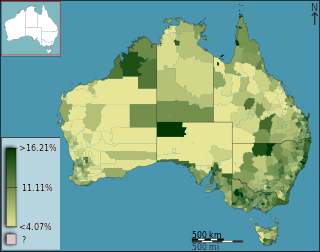Related Research Articles
Medicare is the publicly funded universal health care insurance scheme in Australia, along with the Pharmaceutical Benefits Scheme (PBS) operated by the nation's social security department, Services Australia. Medicare is the principal way Australian citizens and permanent residents access most health care services in Australia. The scheme either partially or fully covers the cost of most primary health care services in the public and private health care system. All Australian citizens and permanent residents have access to fully-covered health care in public hospitals, funded by Medicare, as well as state and federal contributions. International visitors from 11 countries have subsidised access to medically necessary treatment under reciprocal agreements.
Health insurance or medical insurance is a type of insurance that covers the whole or a part of the risk of a person incurring medical expenses. As with other types of insurance, risk is shared among many individuals. By estimating the overall risk of health risk and health system expenses over the risk pool, an insurer can develop a routine finance structure, such as a monthly premium or payroll tax, to provide the money to pay for the health care benefits specified in the insurance agreement. The benefit is administered by a central organization, such as a government agency, private business, or not-for-profit entity.
Universal health care is a health care system in which all residents of a particular country or region are assured access to health care. It is generally organized around providing either all residents or only those who cannot afford on their own, with either health services or the means to acquire them, with the end goal of improving health outcomes.
The term managed care or managed healthcare is used in the United States to describe a group of activities intended to reduce the cost of providing health care and providing American health insurance while improving the quality of that care. It has become the predominant system of delivering and receiving American health care since its implementation in the early 1980s, and has been largely unaffected by the Affordable Care Act of 2010.
...intended to reduce unnecessary health care costs through a variety of mechanisms, including: economic incentives for physicians and patients to select less costly forms of care; programs for reviewing the medical necessity of specific services; increased beneficiary cost sharing; controls on inpatient admissions and lengths of stay; the establishment of cost-sharing incentives for outpatient surgery; selective contracting with health care providers; and the intensive management of high-cost health care cases. The programs may be provided in a variety of settings, such as Health Maintenance Organizations and Preferred Provider Organizations.

Travel insurance is an insurance product for covering unforeseen losses incurred while travelling, either internationally or domestically. Basic policies generally only cover emergency medical expenses while overseas, while comprehensive policies typically include coverage for trip cancellation, lost luggage, flight delays, public liability, and other expenses.
Critical illness insurance, otherwise known as critical illness cover or a dread disease policy, is an insurance product in which the insurer is contracted to typically make a lump sum cash payment if the policyholder is diagnosed with one of the specific illnesses on a predetermined list as part of an insurance policy.
Medibank Private Limited, better known as simply Medibank, is one of the largest Australian private health insurance providers, covering 3.7 million people in 2021. Medibank initially started as an Australian Government not-for-profit insurer in 1976, before becoming for-profit in 2009 and privatised by the Abbott government in 2014. Medibank now operates as a publicly-listed company on the Australian Securities Exchange.
The Hospitals Contribution Fund of Australia, commonly referred to as HCF, is an Australian private health insurer headquartered in Sydney, New South Wales. Founded in 1932, it has grown to become one of the country's largest combined registered private health fund and life insurance company. HCF is the third-largest health insurance company by market share, and is the largest not-for-profit health fund in Australia.
Australia's insurance market can be divided into roughly three components: life insurance, general insurance and health insurance. These markets are fairly distinct, with most larger insurers focusing on only one type, although in recent times several of these companies have broadened their scope into more general financial services, and have faced competition from banks and subsidiaries of foreign financial conglomerates. With services such as disability insurance, income protection and even funeral insurance, these insurance giants are stepping in to fill the gap where people may have otherwise been in need of a personal or signature loan from their financial institution.

Health care in Australia operates under a shared public-private model underpinned by the Medicare system, the national single-payer funding model. State and territory governments operate public health facilities where eligible patients receive care free of charge. Primary health services, such as GP clinics, are privately owned in most situations, but attract Medicare rebates. Australian citizens, permanent residents, and some visitors and visa holders are eligible for health services under the Medicare system. Individuals are encouraged through tax surcharges to purchase health insurance to cover services offered in the private sector, and further fund health care.

nib Group is an Australian health care fund. It was established in 1952 to provide health insurance for workers at the BHP Newcastle Steelworks, and has since grown into a national and international operation. As of 2017, nib held an 8.3% share of the Australian private health cover market.
An equalization pool is a fund created to level out differences in financial risk, often across long periods of time, in a process known as risk equalization. Examples include mandatory health insurance and grower co-operatives.
In the United States, health insurance helps pay for medical expenses through privately purchased insurance, social insurance, or a social welfare program funded by the government. Synonyms for this usage include "health coverage", "health care coverage", and "health benefits". In a more technical sense, the term "health insurance" is used to describe any form of insurance providing protection against the costs of medical services. This usage includes both private insurance programs and social insurance programs such as Medicare, which pools resources and spreads the financial risk associated with major medical expenses across the entire population to protect everyone, as well as social welfare programs like Medicaid and the Children's Health Insurance Program, which both provide assistance to people who cannot afford health coverage.

Bupa, legally British United Provident Association Limited, is a British multinational health insurance and healthcare company with over 43 million customers worldwide.
Ombudsmen in Australia are independent agencies who assist when a dispute arises between individuals and industry bodies or government agencies. Government ombudsman services are free to the public, like many other ombudsman and dispute resolution services, and are a means of resolving disputes outside of the court systems. Australia has an ombudsman assigned for each state; as well as an ombudsman for the Commonwealth of Australia. As laws differ between states just one process, or policy, cannot be used across the Commonwealth. All government bodies are within the jurisdiction of the ombudsman.

Niva Bupa Health Insurance Company Limited is an Indian health insurance company, founded in 2008. It is headquartered in New Delhi, India.
Health Insurance Fund (HIF) is an Australian, not-for-profit insurer. In 1954 it was brought into existence as the WA Government Employee's Hospital and Medical Benefits Fund Incorporated. But has since undergone a series of name changes to better reflect the scope and services it provides.

Cover-More Group is a global travel insurance and medical assistance provider headquartered in Sydney, Australia. The group was acquired by Zurich Insurance Group in April 2017. The company has more than 40% share of the Australian market. The group also has leading market positions in India, Ireland, Latin America, New Zealand and the USA where Cover-More owns Travelex Insurance Services. The global group has more than 18 million customers and employs more than 2200 people. Cover-More has operations in 22 countries including Australia, New Zealand, India, China, Malaysia, the United Kingdom, the USA, Canada, Brazil and Argentina.
Comparethemarket.com.au is an Australian price comparison website operated by Compare the Market Pty Ltd, part of Innovation Holdings Australia Pty Ltd and BHL Holdings Limited. It offers a service for customers to compare a range of general insurance, health insurance, life insurance, energy and personal finance products.
References
- ↑ "Template Overseas Student Health Cover Deed" (PDF). Archived from the original (PDF) on 9 April 2013.
- ↑ "Health insurance for students". Department of Home Affairs.
- ↑ "Reciprocal Health Care Agreements - When you visit Australia - Australian Government Department of Human Services". www.humanservices.gov.au. Retrieved 20 December 2019.
- ↑ Ombudsman, Private Health Insurance. "Overseas Student Health Cover". www.privatehealth.gov.au.
- ↑ "Overseas Student Health Cover (OSHC) for Australia". Default. Retrieved 20 December 2019.
- ↑ "Overseas Student Health Cover (OSHC) | Overseas". Medibank. Retrieved 20 December 2019.
- ↑ "OSHC - Overseas Student Health Insurance & Health Cover | nib". www.nib.com.au. Retrieved 20 December 2019.
- ↑ "Overseas Student Health Cover". www.bupa.com.au. Retrieved 20 December 2019.